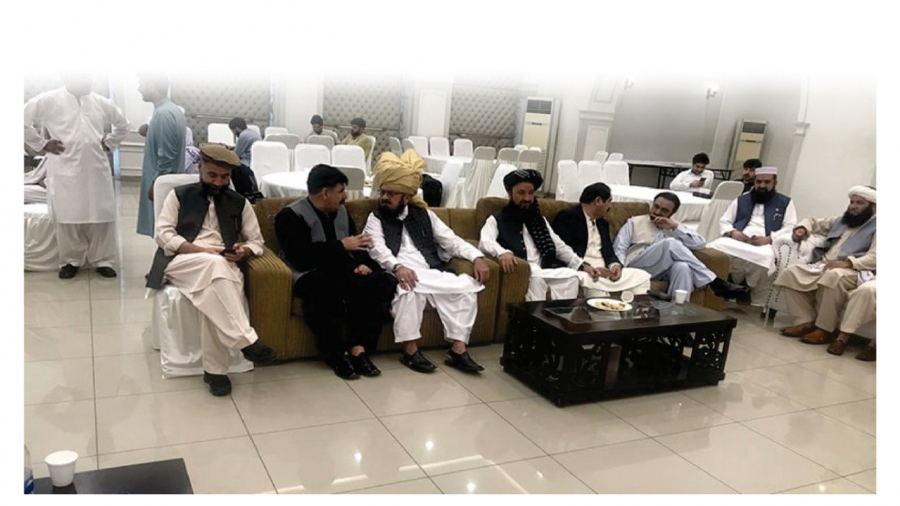Muhammad Raza Shah
Formally established in 2007, the Tehreek-e-Taliban Pakistan (TTP) remained a largest and most active militant organization in Pakistan. Members of this ethno-centric armed group are mostly Pashtuns belonging to former FATA(Federally Administered Tribal Areas) and Khyber Pakhtunkhwa (KP) region of Pakistan. The tribal belt of Pakistan provided recruitment and operational leverage to the TTP. The people living in the tribal area joined TTP due to two factors i.e., the insecure border area of the tribal district with Afghanistan and the concentration of local and migrant Pashtuns from western neighboring country. Along with security these factors also provided TTP an opportunity of earning. The banned outfit exploits the locals and tempted them to join their organization.
Impact of offensives against TTP
After 2001, Pakistan Army conducted more than three dozen operations in FATA, most of them in North and South Waziristan, as thousands of militants had entered these two districts in search of refuge after 9/11. Military operations like Zarb-e-Azb and Rah-e-Najat in this semi-autonomous region were the last offensive operations by Pakistan Army in the region. Although, military operations in Pakistan’s tribal areas succeeded in eliminating TTP but a major consequence of the use of force came in the form of fueling ethno-political grievances among the local population of FATA against Pakistani government and its security forces.
Change in strategy
After restoring the state’s writ, the government announced merging FATA with KP in 2015 abolishing the independent status of FATA and to introduce administrative and economic reforms. However, this reform process remained slow-paced and other measures including border fencing with Afghanistan have stopped cross-border economic activities and hampered the daily travel of local people consequently affecting lives of the populace. Although, these measures were intended to bring FATA into the mainstream with the rest of Pakistan, but resulted in local grievances against the state. In the past, the TTP has used similar local issues for fund raising and recruitment.
The Redesigned Security Strategy
The “National Action Plan”(formulated in 2014) was intended for aggressive actions and institutional coordination to counter terrorism and violent extremism. However, in the revived National Security Policy of the country, effective till 2026, intelligence operations against all terrorist groups, interdiction of financial sponsorship of terrorism, elimination of poverty, removing instability and structural deficiencies in areas where terrorists recruit for their groups will be undertaken. According to the new policy, a four-point strategy will be adopted to deal with the separatist elements. First; pro-negotiation groups will be separated from the non-negotiable groups, second; the recruitment or involvement of these groups will be eliminated, third; curbing financial support of the terrorists and fourth; targeted socio-economic policieswill be formed to redress the grievances of common people of backward areas to stop their exploitation at the hands of miscreants.
Negotiations with TTP: A Way forward
Pakistan has been negotiating with the TTP for quite some time to make them surrender and stop violence against the state of Pakistan. The TTP has announced a ceasefire to show its seriousness towards the peace process. For the first time since US withdrawal from Afghanistan, the government of Pakistan has pronounced negotiating with a few groups involved in terrorism. A government-led committee consist of civilian and military representatives is negotiating with TTP. However,the final decision will be made with the guidance, consensus and approval of the Parliament in the light of the Constitution of Republic of Pakistan.
Why To Negotiate with Terrorists?
Though, military operations have proved to be potent in wiping out terrorists, but it is still not a lasting solution. Victory requires the use of multi-pronged strategy and the use of force is only one tool in war against terrorism. All available remedies must be utilizedfor complete success. Pakistan has used its military power for years, but the endless conflict caused exhaustion on both physical and psychological level. Since 2001, thousands of soldiers, paramilitary forces and police officers have been martyred in more than 19,000 terrorist attacks. Perhaps now is the time to give peace a chance through negotiations. Such negotiations have been successful in the past as well. In between Feb 2016 and Dec 2017, around 2,000 armed militants, including dozens of key commanders, abandoned violence and surrendered to state in various parts of Balochistan. This was a major step towards mainstreaming the youth who were embroiled in violence against the state and citizens.
Favorable environment for negotiations
Given the present regional and international geo-political situations, itis a good time to try and give peace a chance. After Afghan Taliban took over Afghanistan, they have assured Pakistan of not allowing their soil to be used by TTP for attacks against Pakistan. For the past 15 years, no such assurance has ever come from the Afghan government, nor has any action been taken against the TTP, which enjoyed immense support and sanctuaries along the other side of the border. After the US withdrawal from Afghanistan, the TTP militants may not enjoy the same support. Based on firm assurances from the Afghan Taliban, the situation appears to be in Pakistan’s favor, which bodes well for peace talks. Otherwise, TTP will remain in Afghanistan and any hostile foreign intelligence agency can use them against Pakistan.
Next Step
After years of economic upheaval, instability and crisis Pakistan needs to breathe some peace so that it can focus on the looming economic crisis and emerging geo-political challenges. Peace negotiations are an important part of the process of sustainable peace and stability. For any progress to be made, the political and military leadership need to work together to completely defeat militancy in Pakistan. No state can afford to have a parallel system or a permanent militant organization. A comprehensive strategy that combines political and military means to address the problem is the need of the hour.


